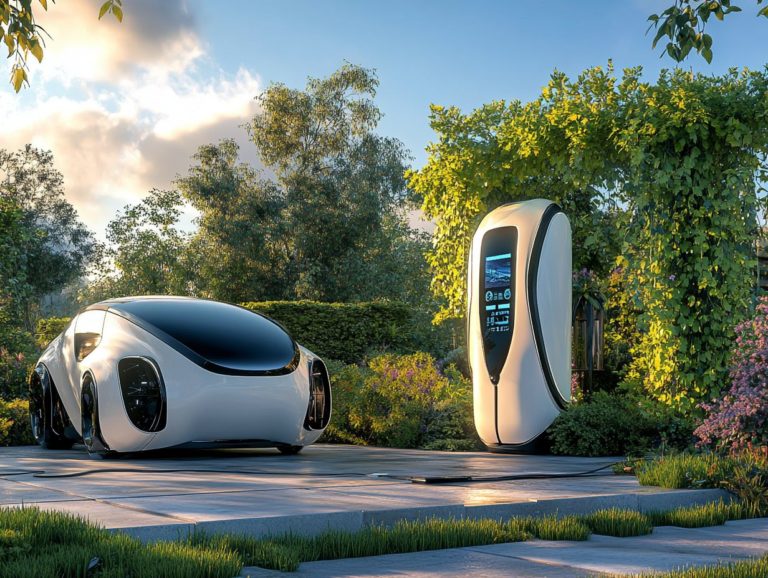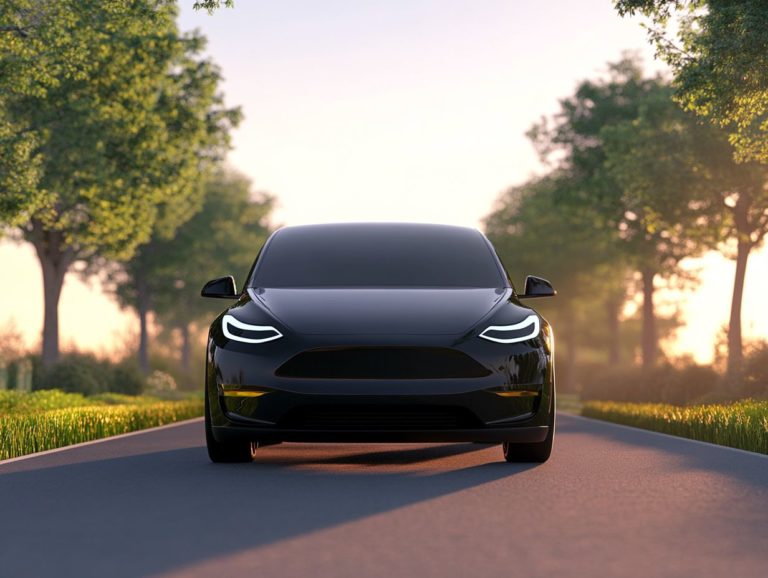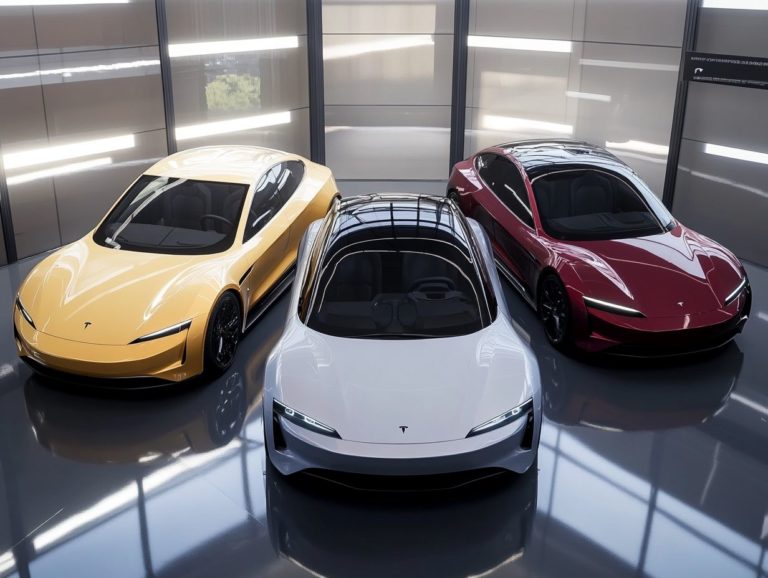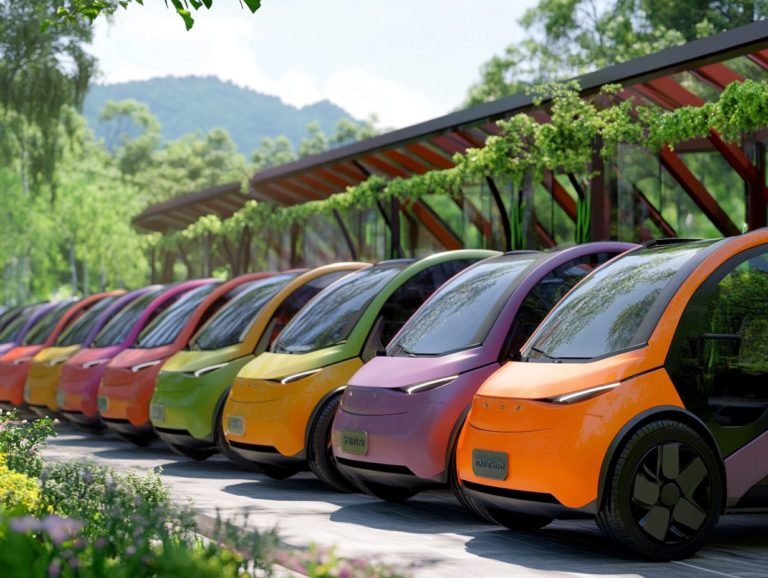How EVs are Changing the Auto Industry Landscape
Electric vehicles (EVs) are far more than a fleeting trend; they re fundamentally transforming the auto industry and reshaping your perspective on transportation.
You ll discover what EVs are and how they operate, delve into the significant shifts they re driving in manufacturing and the realm of traditional gasoline cars, and uncover the myriad benefits they present from environmental gains to cost savings for you, the consumer.
You ll also confront the challenges that lie ahead, including infrastructure issues and range anxiety, while contemplating the groundbreaking innovations that are on the horizon.
Engage with us as we unpack the profound impact of EVs on your roads and the world at large.
Contents
Key Takeaways:
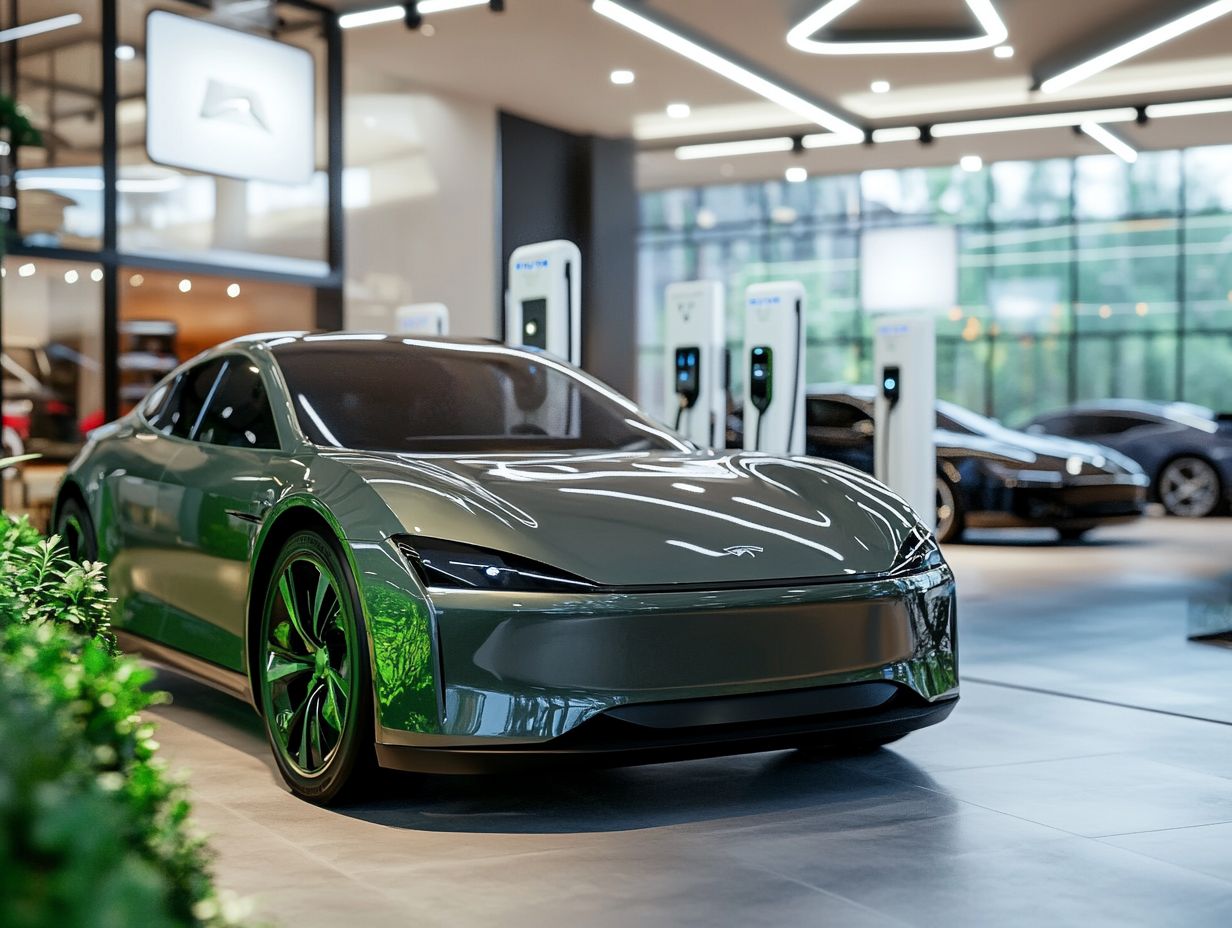
- EVs are disrupting the traditional gasoline car market, leading to changes in manufacturing and supply chains, making the auto industry more environmentally friendly.
- The benefits of EVs include reducing carbon emissions and saving consumers money through lower fuel and maintenance costs.
- While EVs face challenges such as infrastructure and cost, the future looks bright with expected growth and advancements in technology.
What are EVs and How do They Work?
Electric vehicles (EVs) are ushering in a transformative shift in the automotive industry. They use new battery technology and electric motors to improve efficiency and cut down on greenhouse gas emissions. The EV revolution showcases significant advancements in lithium-ion batteries that power electric drivetrains, all backed by a robust framework aimed at educating consumers and developing infrastructure to support adoption across various vehicle types.
These vehicles convert electrical energy stored in batteries into mechanical energy, providing smooth and efficient propulsion. At the core of every EV lies its electric motor, essential for delivering power to the wheels without relying on traditional combustion engines.
Battery technology, particularly regarding how much energy batteries can store and charging speed, is crucial for improving driving range and user convenience. As governments prioritize sustainability, integrating renewable energy sources into the EV ecosystem highlights the importance of this shift, transforming electric vehicles from mere options into a responsibility for future generations.
Impact of EVs on the Auto Industry
The impact of electric vehicles (EVs) on the automotive industry is nothing short of transformative. You’ll notice how electric vehicles are reshaping fuel economy and driving impressive acceleration in EV adoption.
Market leaders like Tesla have made significant strides, capturing substantial market share and igniting a competitive landscape that prioritizes autonomous driving and groundbreaking technology. This shift is a thrilling revolution that you won t want to miss!
Changes in Manufacturing and Supply Chain
The rise of electric vehicles (EVs) prompts a rethinking of manufacturing processes and supply chains, unlocking significant economic opportunities. As automotive companies, it s essential to reconsider factory designs and battery production methods to keep pace with the growing electric vehicle market.
This transition has sparked a heightened focus on sustainable practices and the responsible sourcing of raw materials like lithium and cobalt, which are crucial for battery production. You re likely investing in innovative technologies that streamline the assembly of EV components, prioritizing efficiency while actively reducing carbon footprints.
Collaborations with tech firms are transforming supply chains, paving the way for a circular economy that champions recycling and repurposing materials. These advancements enhance production capabilities and create new job opportunities in regions that may be struggling economically.
Ultimately, this positions you to capitalize on the burgeoning EV sector, influencing broader economic landscapes in the process.
Consider joining the EV movement today to embrace a cleaner, more sustainable future!
Disrupting Traditional Gasoline Cars
Electric vehicles (EVs) are revolutionizing the automotive world, offering you a cleaner alternative to traditional gasoline cars. They significantly reduce your carbon footprint and greenhouse gas emissions. Just look at the steady rise in electric car sales across various types; it s impressive.
This shift shows your preference for eco-friendly options and aligns with global sustainable movements. The advantages of EVs go well beyond just cutting emissions; they also feature lower operating costs, cutting-edge battery technology, and the convenience of home charging.
As public infrastructure catches up with more charging stations popping up, now is the perfect time to consider making the switch! Traditional automakers are taking note and investing heavily in electric innovations, reshaping the automotive landscape and prompting a thoughtful examination of what the future of fuel consumption truly holds.
Benefits of EVs
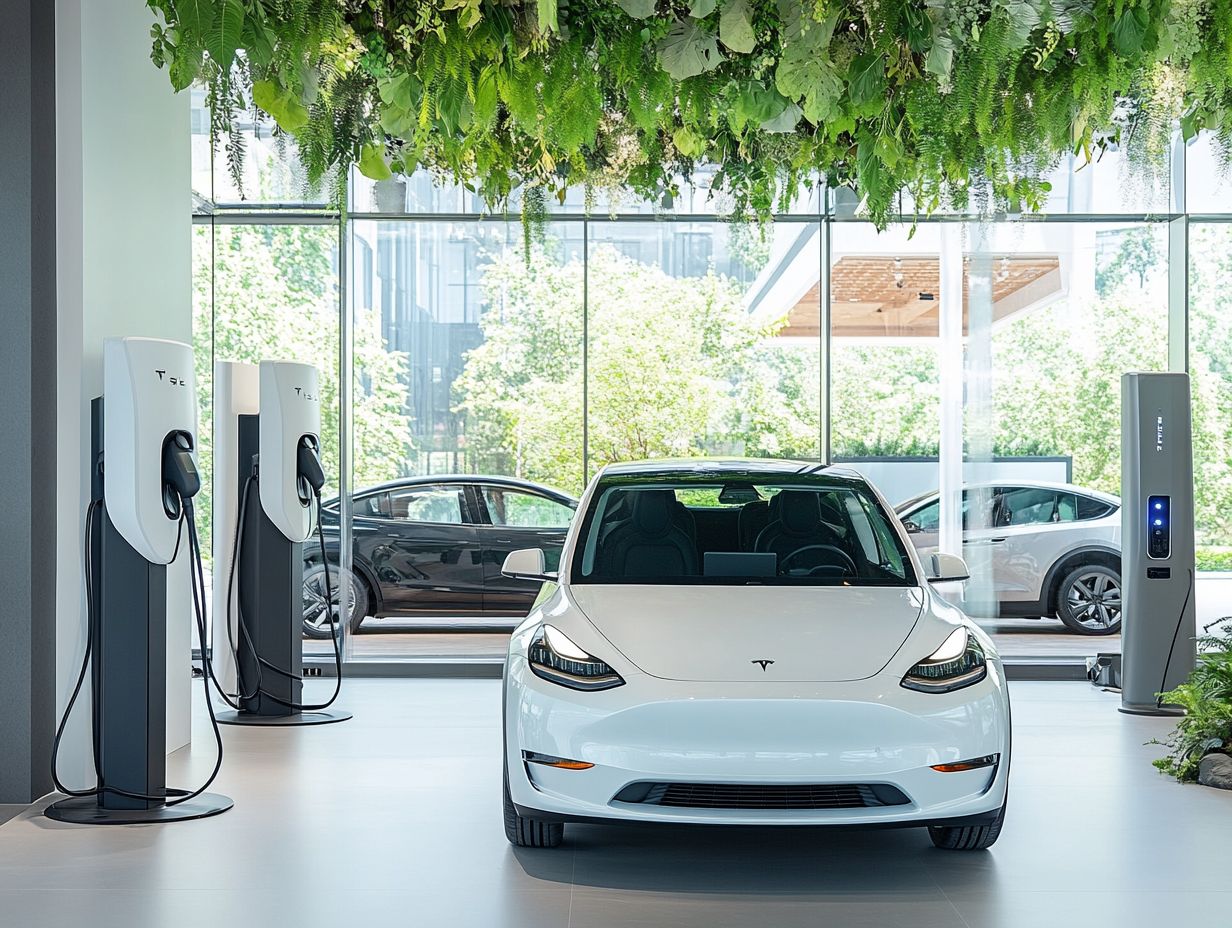
The benefits of electric vehicles (EVs) extend far beyond basic transportation. You ll find significant environmental advantages, including cleaner air and reduced pollutants.
You can also enjoy significant cost savings thanks to lower maintenance expenses and improved efficiency. Embracing EVs not only enhances your driving experience but also contributes positively to the planet.
Environmental Benefits
Electric vehicles (EVs) play a vital role in enhancing environmental health by improving air quality and reducing emissions. This is essential for tackling climate change and moving towards a zero-emissions future.
With minimal tailpipe emissions, these vehicles significantly diminish airborne pollutants like nitrogen oxides and particulate matter. As cities increasingly embrace electric transportation solutions, the benefits for public health become evident, fostering healthier communities.
The reduction in greenhouse gas emissions extends beyond the vehicles themselves; it also includes the potential for cleaner electricity generation from renewable sources. By making the switch to EVs, you enhance energy efficiency and contribute to a sustainable cycle of energy use that aligns perfectly with global initiatives to combat climate change.
The combined impact of these elements creates a pathway toward a greener, more sustainable future.
Cost Savings for Consumers
Electric vehicles (EVs) present you with attractive cost savings, primarily rooted in lower maintenance expenses and the potential for reduced charges compared to traditional gasoline vehicles.
These savings arise from various factors, including the simpler mechanics of EVs, which translate to less wear and tear and significantly fewer repairs over time. In terms of charging your electric vehicle, costs tend to be far more stable than volatile gasoline prices, enabling you to budget with greater confidence.
Many regions also offer enticing incentives for EV owners, such as tax credits and rebates, which further lighten your financial load.
By embracing EV technology, you can enjoy substantial savings on energy costs compared to conventional fuels, paving the way for long-term economic benefits that can greatly impact your household budget.
Challenges and Limitations of EVs
While electric vehicles (EVs) offer a plethora of benefits, you may encounter certain challenges and limitations. One significant concern is range anxiety, which refers to the worry about how far you can travel on a single charge.
Additionally, there is a need for better charging stations, ensuring that they are available and accessible wherever you go.
Infrastructure and Range Anxiety
Range anxiety is a significant concern for you as a potential electric vehicle (EV) owner. This is primarily due to the slow development of charging stations and charging systems. These developments are crucial for achieving energy independence and building your confidence in EV technology.
This fear can stop you from making the exciting switch to an EV. It also stifles the broader adoption of electric vehicles. Without a widespread and reliable charging network, it s understandable that you might question the practicality of making the switch, especially for long-distance travel.
Finding effective solutions to this anxiety is essential. By expanding the availability of charging stations and ensuring fast, convenient access, stakeholders can help you feel more secure in your decision. This ultimately leads to increased sales and a greater commitment to sustainability.
Cost and Availability of Charging Stations
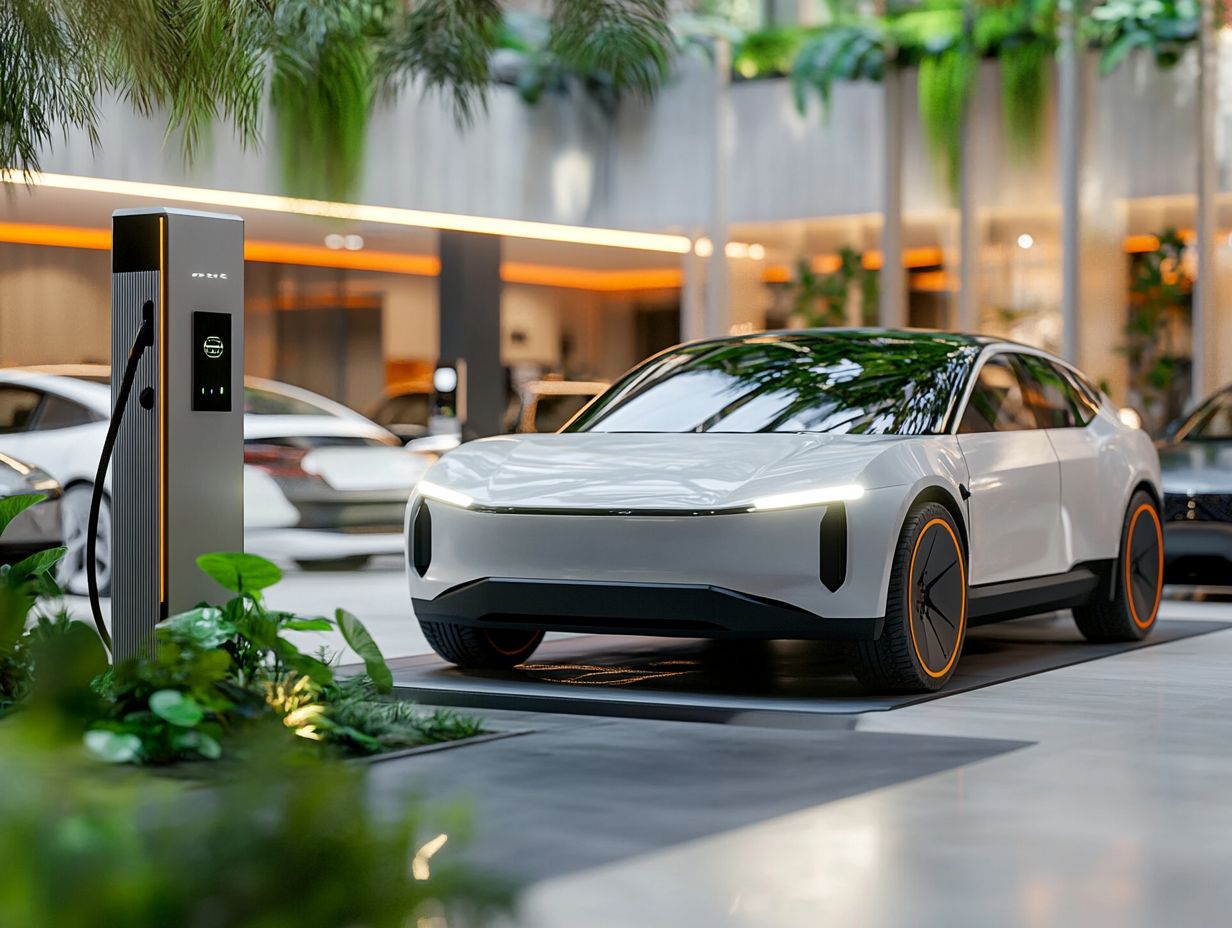
The cost and availability of charging stations are pivotal factors influencing your decision to adopt electric vehicles (EVs). You need to feel confident that accessible and affordable charging systems are in place before making the switch from traditional vehicles.
A consistent network of charging options not only eases range anxiety but also helps you feel more confident in EV technology. As you contemplate the eco-friendly choice, the perceived financial burden of installing home chargers devices installed at your home for convenient charging can weigh heavily on your mind.
Incentives from local governments or private companies can make these vehicles even more appealing, broadening their attractiveness to a wider audience. Continuous improvements in charging infrastructure are essential for fostering a more favorable landscape for potential EV owners, ultimately propelling higher adoption rates.
The Future of EVs
The future of electric vehicles (EVs) holds tremendous promise, characterized by anticipated growth and innovation. As advancements in EV technology continue to transform the landscape, you ll find a wealth of exciting opportunities awaiting both consumers and manufacturers.
The evolution of this market is not just a trend; it s a revolution that redefines mobility and sustainability for all.
Expected Growth and Development
The anticipated growth and development of the electric vehicle market open up a wealth of economic opportunities for you. This includes increasing profitability for manufacturers and a significant expansion in market share as more consumers embrace EV technology.
This shift not only enhances your competitive advantages if you re an established player but also paves the way for new entrants like you to innovate and capture a slice of a rapidly evolving landscape. With governmental policies increasingly favoring sustainable practices and rising investment in charging infrastructure, you can expect to witness a thriving ecosystem surrounding electric vehicles.
From battery production to software development, various sectors, including yours, stand to benefit. This creates jobs and drives economic growth. As consumer preferences lean toward green technology, your potential for profit margins is likely to expand, encouraging further research and development initiatives.
Innovations and Advancements in EV Technology
Innovations and advancements in EV technology are transforming the electric vehicle landscape. Key areas of focus include batteries and electric motors, which enhance performance and pave the way for future developments in autonomous driving.
Breakthroughs in solid-state batteries are on the horizon. These batteries use solid materials instead of liquid, offering more energy density and faster charging capabilities. This makes longer driving ranges an achievable reality.
Electric motors are becoming more efficient and compact. This evolution provides better acceleration and overall vehicle agility, making your driving experience more exciting!
As industry leaders invest in research and development, remarkable strides toward fully autonomous driving systems are on the way. These systems will use artificial intelligence and advanced sensors to navigate complex environments safely and efficiently. Such innovations enhance vehicle functionality and contribute to a more sustainable and environmentally friendly transportation ecosystem.
Frequently Asked Questions
What are EVs and how are they changing the auto industry?
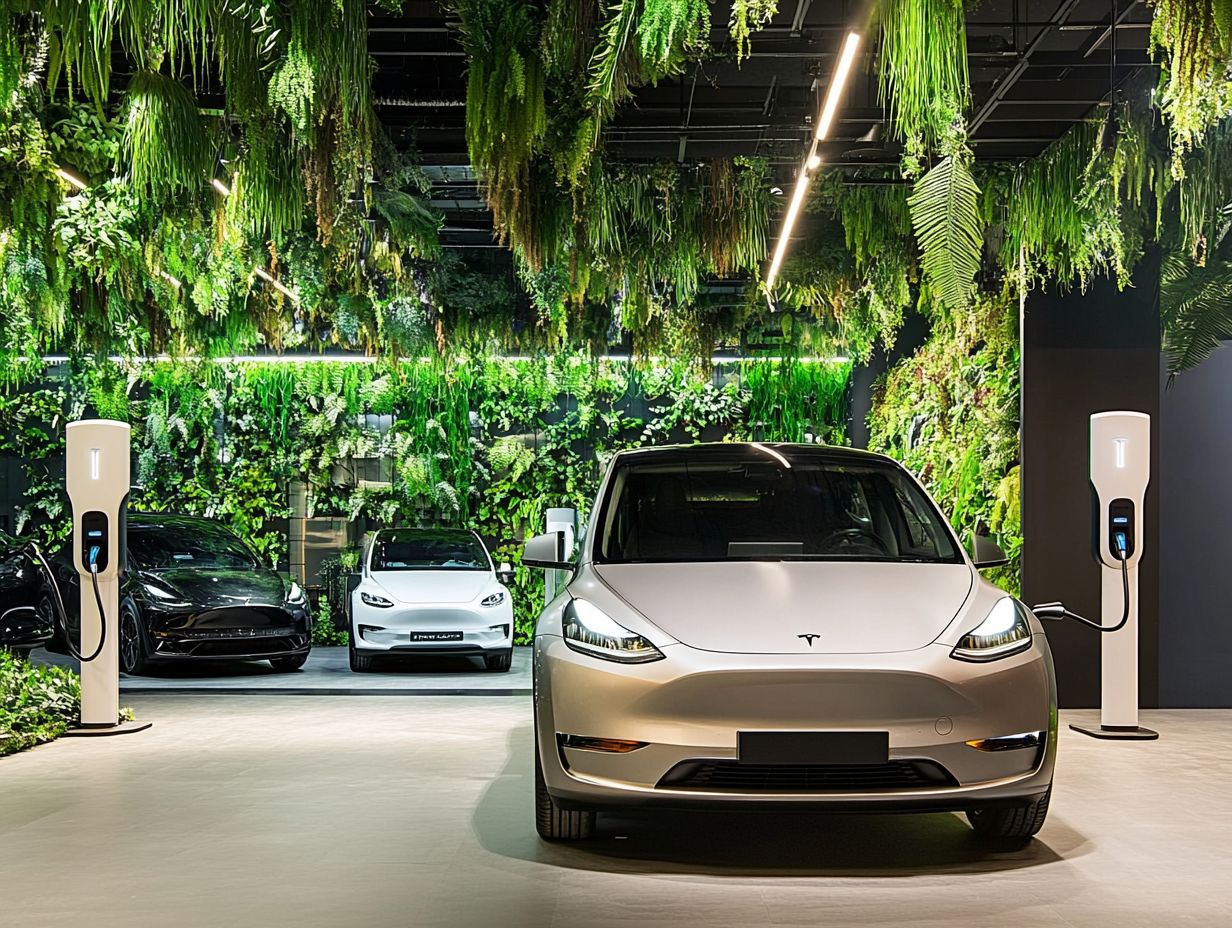
EVs, or electric vehicles, run on electricity instead of gasoline. They promote sustainability and help reduce carbon emissions, fundamentally changing the auto industry.
What are the benefits of EVs?
EVs offer numerous benefits, including lower operating costs, reduced greenhouse gas emissions, and improved air quality. They also have lower maintenance costs and provide a smoother driving experience.
How are EVs impacting traditional automakers?
The rise of EVs has prompted traditional automakers to focus more on electric vehicles to stay competitive. Many are investing heavily in EV technology and developing new models to meet growing demand.
How are EVs influencing new technologies in the auto industry?
EVs require advanced technology to power their electric motors and manage battery usage. Consequently, the auto industry is investing in new technologies such as battery advancements, autonomous driving, and improved charging infrastructure.
What challenges come with the rise of EVs?
One major challenge is the need for a widespread charging infrastructure to support the growing number of EVs. There are also concerns about the availability and sustainability of materials used in EV batteries.
How do EVs compare to traditional gasoline-powered cars?
EVs are continuously advancing and can now match or even surpass the performance of traditional cars. While the initial cost of purchasing an EV may be higher, the operational and maintenance costs are significantly lower, making them a more cost-effective option over time.
Join the electric revolution today!
In summary, the advancements in EV technology are reshaping the auto industry, providing sustainable solutions, and paving the way for exciting future developments. To stay informed about upcoming trends, check out the future of EVs and be part of the change!

